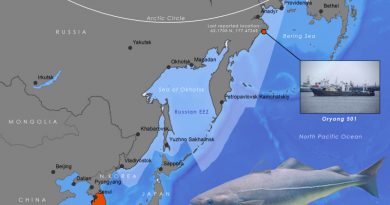Time for a Change
Sobering news about the North this week. First, Maclean’s annual crime ranking found the three territories to have dramatically higher crime rates than the provinces, and Prince George, a northern BC city, having the worst crime rate of any city south of 60. A feature story on the issue, entitled “Canada’s Shame” points to alcohol and drug abuse, a housing shortage, lack of employment opportunities for unskilled workers and a 75% dropout rate as contributing factors. As the authors write, “[f]orget Arctic sovereignty. This is the problem that needs attention.”
In the same issue, another article featured the head of the Kitikmeot Corporation noting that in a recent hiring drive for a Nunavut mine, only four out of forty applicants even passed the drug test. I’ve heard similar numbers from other businesses trying to hire locally in the North before, but it still shocks.
There must have been such hope eleven years ago, when Nunavut became a territory, that change would soon come. New public institutions, new procedures, and a government for the people, of the people and by the people were implemented. But if anything, things have gotten worse, as a Nunavut government-commissioned report card determined in an admirable decision to publicly audit the territory’s performance after its first decade.
If it wasn’t clear before, Canadians must know by now that something is terribly wrong in the North. And I can say with some certainty that the problem isn’t money; Nunavummiut are the mostly highly subsidized people in the world at a rate of about $32,000/capita, with NWT and Yukon coming in at about $18,000 a head. By comparison, Greenland receives about $11,000/capita from Denmark, and I can’t see much benefit from the tripling of government funding that Canadian Inuit receive. A similar debate – that aid/subsidies don’t alleviate poverty – has been occurring in Africa following the publication of the book Dead Aid by Dambisa Moyo. But I am sure even advocates of her theory would be shocked that a $32,000 subsidy in a highly developed, democratic, conflict-free country with an educated and committed public sector does little to solve its most debilitating socio-economic problems. So if it’s not money that is lacking, what is? Two things: ideas and political will.
First, ideas. While we have hundreds of academics and dozens of NGOs in this country working to identify solutions to problems of underdevelopment in the global South, there are very few working on the problem in the Canadian North. Those that do exist are scattered across the country, lonely northern specialists in large, diverse departments. Not to say that no one is trying – the territorial governments, INAC, and a host of Inuit and aboriginal associations have been working tirelessly to come up with creative solutions. But successes are rare. It’s time to start thinking about northern development in a serious and systemic way.
The second missing component is political will. The social and economic problems in the north are complex, and there is no quick fix. But right now there isn’t even any light at the end of the tunnel. The current cohort of northern school-aged children are no further ahead than in the previous generation, and Fetal Alcohol Syndrome is having and will continue to have catastrophic effects on northern society. We must acknowledge that the current system is a failure, and then have the political will to radically change it.
I don’t profess to have any answers, and I am certain there are no easy ones. But the status quo is not a viable option. Development can occur: it has occurred in the Western world over the course of the past two hundred years through a combination of industrialization and the evolution of accountable government; it has occurred in Asia as a result of education and technology; and it has even occurred in a handful of African and Latin American countries. The Canadian North has almost every advantage in comparison to Third World states. All that’s left is to make it a priority.


